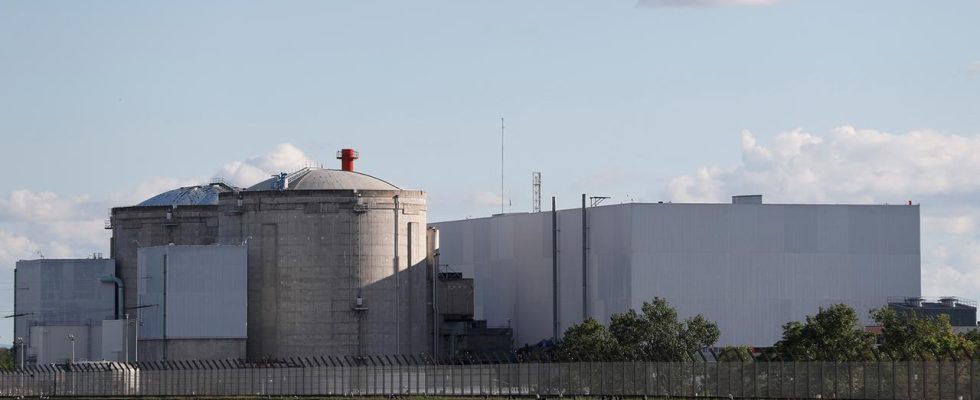The French electricity company EDF wants to build a recycling plant for slightly radioactive scrap near the German border. There is a lot of criticism of the project from the German side.
The French electricity company EDF wants to set up a recycling plant for slightly radioactively contaminated scrap at the Fessenheim site in Alsace. The scrap is said to come from nuclear plants. Fessenheim is just a few kilometers behind the border with Germany. That’s why the public in neighboring Germany should also be involved in the multi-stage approval process, said an EDF spokeswoman. There has been criticism of the industrial project for a long time in Germany. EDF wants to put the recycling plant (“Technocentre”) into operation on a previously unused area of the site in 2031.
The Fessenheim nuclear power plant, southeast of Colmar, was shut down in 2020 after 42 years of operation. Dismantling is expected to begin in 2026. The Freiburg regional council expects cross-border public participation (“Enquête publique”) in 2027, as a spokeswoman reported. Citizens and authorities could then take part.
“The Freiburg regional council will follow the approval process for the Technocentre very closely and incorporate the interests of the German side into the French process as part of public participation,” said the spokeswoman. The Baden-Württemberg state government made it clear last year that it – like the federal government – “regrets” EDF’s plans for a Technocentre.
Criticism from several sides
There has been a lot of criticism against the Technocentre for years: environmentalists fear that radioactivity occurs in recycled metals. The Freiburg regional council at least sees a ray of hope in the project. EDF announced at a meeting in December that ships with upgraded steam generators from other nuclear power plants would land on the Rhine side canal near the Alsatian municipalities of Nambsheim or Ottmarsheim. The burden associated with reloading is now off the table for the German border town of Breisach.
And yet: “If the scrap from all nuclear power plants from Europe or France is now being transported past them in large containers, it is not what the region wanted,” District President Bärbel Schäfer had already said about the transports.
France relies on nuclear power
Fessenheim has an importance that extends far beyond the Upper Rhine region: Germany and France have jointly committed themselves to working together in the use of the area around the nuclear power plant. The project is part of a list agreed upon by Berlin and Paris to implement the Aachen Treaty for German-French cooperation. The new contract was signed in January 2019 by French head of state Emmanuel Macron and then Chancellor Angela Merkel (CDU).
However, a German-French company for a business park near the decommissioned nuclear power plant was dissolved – due to environmental protection regulations, ultimately only a limited area of land was available. However, the state government assured that it would continue to support the Fessenheim future process.
In contrast to Germany, France relies on nuclear power and wants to achieve climate protection goals with it. According to previous information, the construction of 14 new nuclear power plants is being examined by 2050. In addition, the life of existing power plants is to be increased from 40 to 50 years – if safety allows this.

